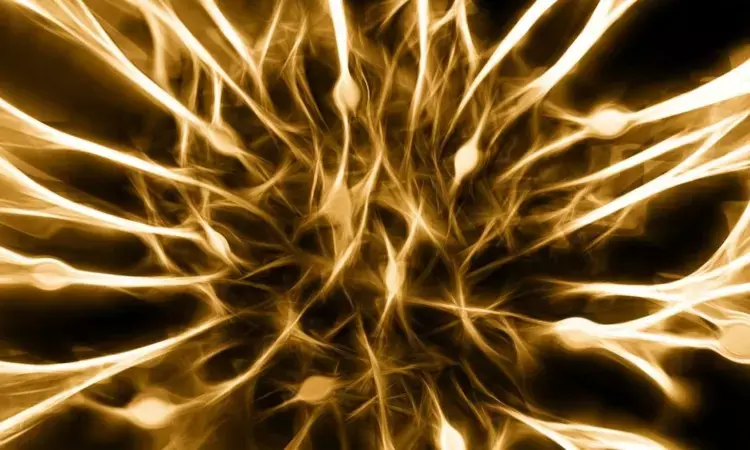- Home
- Medical news & Guidelines
- Anesthesiology
- Cardiology and CTVS
- Critical Care
- Dentistry
- Dermatology
- Diabetes and Endocrinology
- ENT
- Gastroenterology
- Medicine
- Nephrology
- Neurology
- Obstretics-Gynaecology
- Oncology
- Ophthalmology
- Orthopaedics
- Pediatrics-Neonatology
- Psychiatry
- Pulmonology
- Radiology
- Surgery
- Urology
- Laboratory Medicine
- Diet
- Nursing
- Paramedical
- Physiotherapy
- Health news
- Fact Check
- Bone Health Fact Check
- Brain Health Fact Check
- Cancer Related Fact Check
- Child Care Fact Check
- Dental and oral health fact check
- Diabetes and metabolic health fact check
- Diet and Nutrition Fact Check
- Eye and ENT Care Fact Check
- Fitness fact check
- Gut health fact check
- Heart health fact check
- Kidney health fact check
- Medical education fact check
- Men's health fact check
- Respiratory fact check
- Skin and hair care fact check
- Vaccine and Immunization fact check
- Women's health fact check
- AYUSH
- State News
- Andaman and Nicobar Islands
- Andhra Pradesh
- Arunachal Pradesh
- Assam
- Bihar
- Chandigarh
- Chattisgarh
- Dadra and Nagar Haveli
- Daman and Diu
- Delhi
- Goa
- Gujarat
- Haryana
- Himachal Pradesh
- Jammu & Kashmir
- Jharkhand
- Karnataka
- Kerala
- Ladakh
- Lakshadweep
- Madhya Pradesh
- Maharashtra
- Manipur
- Meghalaya
- Mizoram
- Nagaland
- Odisha
- Puducherry
- Punjab
- Rajasthan
- Sikkim
- Tamil Nadu
- Telangana
- Tripura
- Uttar Pradesh
- Uttrakhand
- West Bengal
- Medical Education
- Industry
Vitamin D deficiency adversely impacts neuronal growth and dopamine function in brain

Australia: A recent study published in the Journal of Neurochemistry has shown how vitamin D deficiency impacts neurons' development, contributing to disorders such as schizophrenia.
Using innovative technology, neuroscientists discovered that a lack of vitamin D changes neuron growth and affects the brain's dopamine release mechanism. They found that in the cells grown in the presence of vitamin D, dopamine release was enhanced.
"Our findings show the importance of vitamin D in the structural differentiation of dopaminergic neurons and suggest that maternal vitamin D deficiency might alter how early dopaminergic circuits form," Darryl Eyles, University of Queensland, Saint Lucia, Queensland, Australia, and colleagues wrote in their study.
Previous studies have shown vitamin D to be a critical factor in dopaminergic neurogenesis and differentiation. Also, developmental vitamin D (DVD) deficiency has been associated with disorders of abnormal dopamine signalling with a neurodevelopmental basis, such as schizophrenia. Schizophrenia is linked with several developmental risk factors, both environmental and genetic. There is no precise information on the neurological causes of the disorder, but it is known that schizophrenia is associated with a change in how the brain uses dopamine.
In the present study, the researchers provided further evidence of the role of vitamin D as a mediator of dopaminergic development by showing that it increases neurite outgrowth, presynaptic protein re-distribution, neurite branching, dopamine production and functional release in various in vitro models of developing dopaminergic cells including primary mesencephalic cultures, SH-SY5Y cells, and mesencephalic/striatal explant co-cultures.
The research team at the Queensland Brain Institute developed dopamine-like cells to replicate the differentiation process into early dopaminergic neurons that usually occur during embryonic development.
They cultured the neurons in the absence and presence of the active vitamin D hormone. They then showed alterations in the distribution of presynaptic proteins responsible for dopamine release within these neurites. In three different model systems, dopamine neurite outgrowth was markedly increased.
Using false fluorescent neurotransmitters, a new visualization tool, the team analyzed the functional changes in presynaptic dopamine uptake and release in the absence and presence of vitamin D. They found that in the cells grown in the presence of the hormone, the dopamine release was enhanced compared to a control.
Key takeaways from the study:
- For the first time, the study has shown that chronic exposure to the active vitamin D hormone increases the capacity of developing neurons to release dopamine and continues to establish vitamin D as an essential differentiation agent for developing dopamine neurons.
- This study also has implications for understanding the mechanisms behind the link between DVD deficiency and schizophrenia.
- Dopamine release was enhanced in cells grown in the presence of the vitamin D hormone compared to a control.
The research team believes that such early alterations to dopamine neuron differentiation and function may be the neurodevelopmental origin of dopamine dysfunction later in adults with schizophrenia.
Reference:
Nedel Pertile, R. A., Brigden, R., Raman, V., Cui, X., Du, Z., & Eyles, D. Vitamin D: A potent regulator of dopaminergic neuron differentiation and function. Journal of Neurochemistry. https://doi.org/10.1111/jnc.15829
Dr Kamal Kant Kohli-MBBS, DTCD- a chest specialist with more than 30 years of practice and a flair for writing clinical articles, Dr Kamal Kant Kohli joined Medical Dialogues as a Chief Editor of Medical News. Besides writing articles, as an editor, he proofreads and verifies all the medical content published on Medical Dialogues including those coming from journals, studies,medical conferences,guidelines etc. Email: drkohli@medicaldialogues.in. Contact no. 011-43720751


